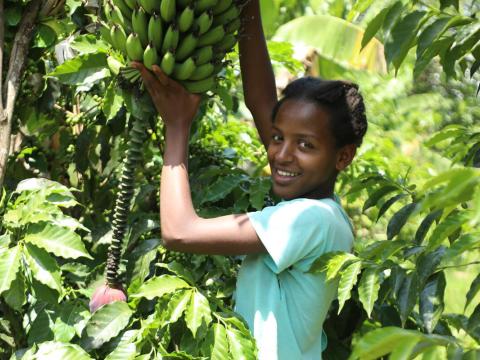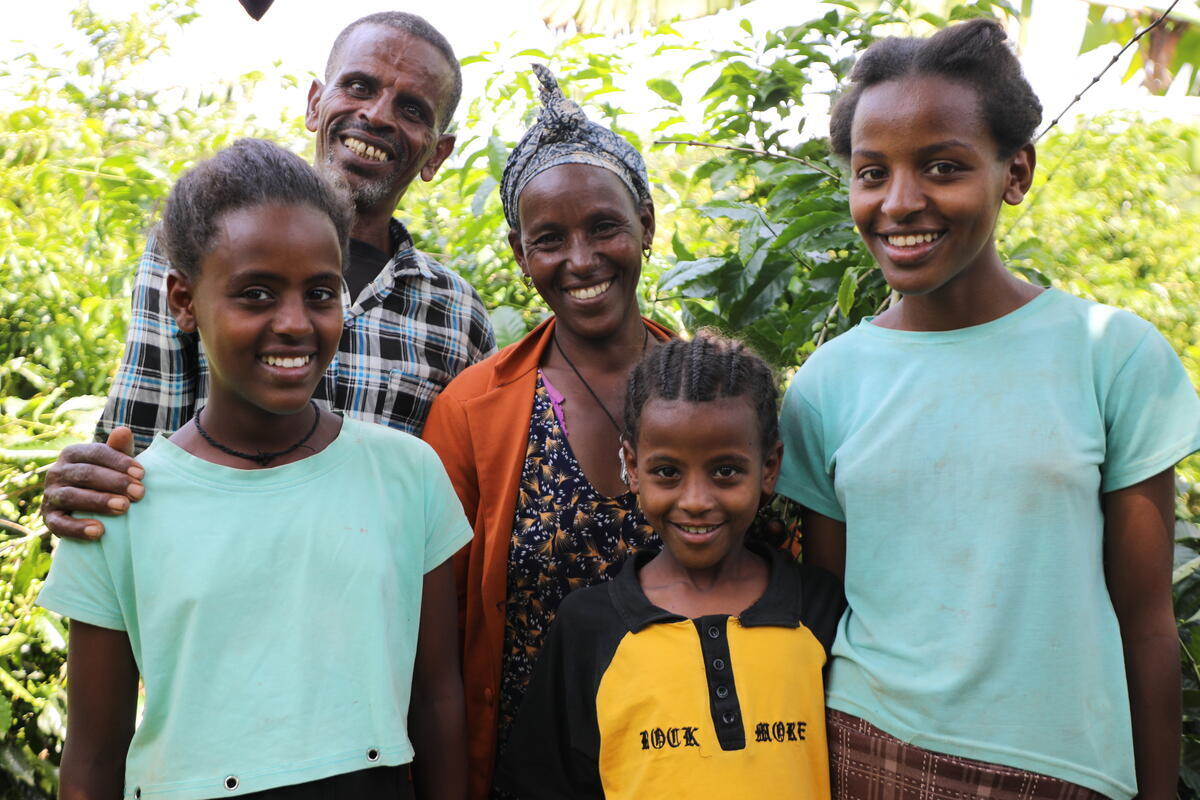From Struggle to Strength: Azalech’s Journey of Change Through Saving

Gewata is a town nestled among dense forests, vibrant with life and activity. The air is crisp and cool, the climate ideal for growing fruits and coffee. Fertile soil and generous nature bless the land. Avocado trees sway in the breeze, bananas grow by the roadsides, and coffee flourishes under the canopy of indigenous trees.
Yet, despite this natural abundance, many families in Gewata lived in poverty, lacking the knowledge and tools to maximise their environment's potential. Among them was Azalech, a 45-year-old mother of seven. Like many in her community, she faced hard times, uncertainty, and vulnerability. With no income of her own, she relied solely on her husband to support the family, an impossible task as food prices soared and needs multiplied. “There were days when I didn’t know how I would feed my children. We had land, but we didn’t know how to make it work for us. It felt like hope was out of reach,” she recalls sadly.
Facing numerous challenges, she struggled to meet her children’s basic needs, and they endured the harsh realities of severe poverty. “We couldn’t afford enough food. My children often went hungry. Lack of clothes, shoes, and school supplies was a constant problem,” she recalls with sadness. Her eldest daughter was even forced to drop out of college due to unaffordable fees. Their home was cramped, with poorly plastered walls and barely enough space for the children to sleep comfortably.

World Vision stepped in with critical support—providing school supplies that allowed her children to return to school. Her 16-year-old daughter, Tsehay, now in eighth grade, remembers what it felt like: “As a small child, I saw my parents struggle just to provide the basics. I never imagined I would go to school with everything I needed.”
Real change began when World Vision’s Gewata Area Programme introduced the Saving for Transformation (S4T) approach through the Integrated Livelihood and Nutrition Security (ILaNS) project. Women in the community, including Azalech, were trained in financial literacy and taught the value of saving. They received tools like savings boxes and were empowered to plan, track, and grow their savings.
Azalech’s transformation began with just five Birr (about $0.09 at the time). Gradually, she increased her weekly savings to 100 Birr (US$1.81). With discipline and confidence, she took a loan to start a small poultry business. As the chickens multiplied, so did her income. She repaid the loan and reinvested in oxen and cows. Then she leased farmland and planted bananas and coffee. Her first banana harvest alone earned 10,000 Birr ($181.81).
The transformation in her life has been truly profound. Through access to savings and small loans, she was able to provide her children with more nutritious meals, rekindling a deep sense of purpose and hope. “Saving empowers me to share the financial responsibilities with my husband and to play an active, meaningful role in the care of my children,” she expresses with heartfelt pride and confidence. Today, Azalech reflects with great pride, “It is almost unimaginable to think that my family now possesses assets valued at over one million Birr (US$18,181).” Her daughter Tsehay agrees. “Saving helped my family a lot. It gave me the chance to go to school, sleep in a better house, and dream about the future.”
Her story is not just about financial growth. It is about determination, vision, and the power of opportunity. From struggling to feed her children to becoming a self-sufficient mother and entrepreneur, her journey shows how targeted support and community empowerment can transform lives.